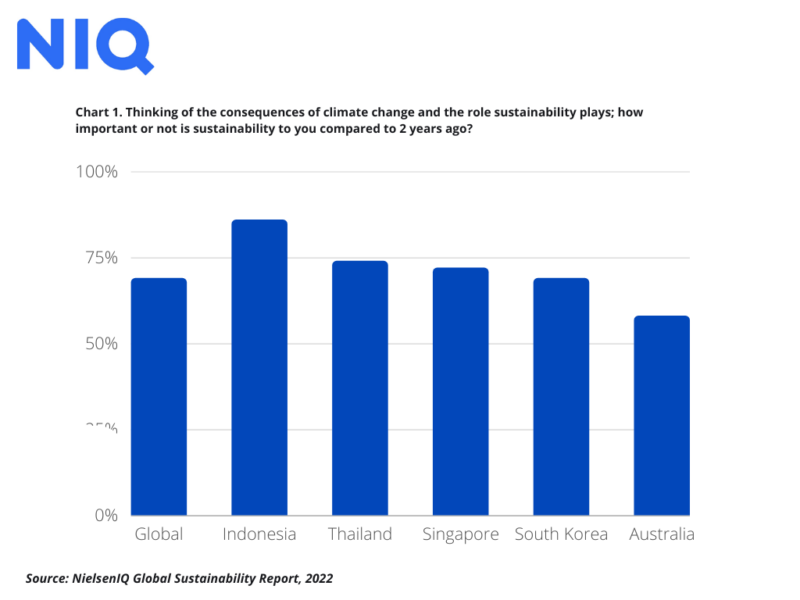Australia lagging in global sustainability trends: NielsenIQ
The latest global study from NielsenIQ found that 69% of shoppers find sustainability more important now compared to 2 years ago. However, Australia lags behind as the second lowest in global rankings, at just 58%.
Across Asia Pacific, NielsenIQ found Indonesia to be the highest-ranking country with sustainability at the forefront, with 86% of shoppers agreeing it is more important. Thailand follows at 74%, then Singapore at 72% and South Korea at 69%. Australia recorded just 58%, following India as the lowest global ranking.

Chart 1. Source: NielsenIQ

